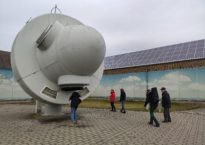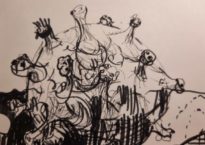Keynote: When the old is dying and the new cannot be born. Multiple crisis and transformation in Central and Southeastern Europe
Current talk of ‘crisis’ suggests that we are living through an era, in which crisis has become permanent and exceptional politics the new norm (Agamben 2005). In that setting, prospects for individual and social development seem to narrow down to becoming more ‘resilient’ through adaptation. This keynote argues that this reading of permanent crisis and exceptionalism, while plausibly structuring our current perceptions, is not particularly helpful to grasp what is going on in Central, Southern and Southeastern Europe. I suggest that we need more specified notions of crisis and transformation. I will lay out some conceptual stepping stones for the conference’s further elaborations, sketching a genealogy of crisis thought and distinguishing between transformation as directed system change (Kollmorgen 2010) and ‘Great transformations’ in Polanyi’s sense (Polanyi 1944). Drawing on selected crisis periods in Spain and Poland for illustration, I will show how a Polanyian reading, combined with Gramsci’s idea of organic crisis, can illuminate the current conundrum between crisis, transformation and populism.

